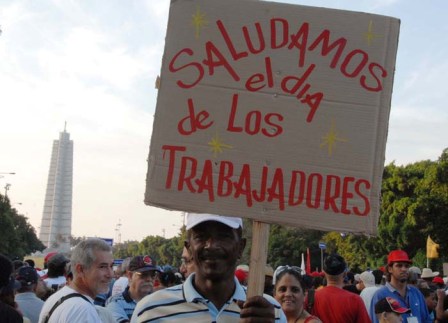Ireland: United Left Alliance's electoral challenge strengthens

January 16, 2011 -- United Left Alliance -- The challenge of the United Left Alliance to the right-wing consensus in Irish politics is strengthening rapidly. As of today, a total of 17 constituencies will be contested by 18 ULA candidates in the looming general election. As well as Tipperary South and West Waterford, 11 constituencies in Dublin, two in Cork, as well as Wexford and Limerick city, candidates have been nominated for Carlow/Kilkenny and Laois/Offaly. This means that almost 50% of Dáil [parliamentary] constituencies will have a left alternative to the establishment political parties.
Joe Higgins MEP of the Socialist Party said:
It is entirely possible that this number will be extended in the coming weeks but even at the current number, it is the first time in Irish politics that there was such a wide representation of principled left candidates presented to the electorate in a general election.
Camila Piñeiro Harnecker: `Cuba needs changes, to take us forward rather than backwards'

Cuban workers march on May Day 2009. Photo by Bill Hackwell/Havana Times.

“Never let us be blind to developments within the masses as we were to the rise of Liberation Theology.” – Barry Healy, “Who’s Afraid of Liberation Theology”, Marxism Summer School 2005
“Christ who suffered on the cross continues to suffer with the land and the people of the land. In the suffering of the land and the people of the land, we see Christ suffering and we hear Christ crying out.” – Rainbow Spirit Elders, Rainbow Spirit Theology, p. 79, as quoted by Chris Budden in Following Jesus in Invaded Space, p. 70
The rise and fall of Tunisia's Ceauşescu

Socialist Unity, January 17, 2011 – Picture sent
Discovering the radical vision of Dr Martin Luther King Jr.

By Billy Wharton

[For more on Tunisia in revolt, click HERE. Scroll down for earlier reports and analysis. ]
UGTT demands dissolution of 'unity government'
Statement of the National Administrative Commission of the General Union of Tunisian Workers (UGTT) issued on January 21, 2011 (first published in English on MRZine).
1. The General Union of Tunisian Workers is a national organisation necessarily interested in political affairs, given its history of struggle during the colonial epoch and the period of the construction of the modern state, considering the dialectical links among economy, society, politics, and culture in the process of development, but out task has become more urgent than ever.
New Anti-Capitalist Party on Tunisia: 'Ben Ali assassin, Sarkozy accomplice!'

Statement by the New Anti-Capitalist Party (Nouveau Parti Anticapitaliste) France, translated by Joh
South Korea: Struggles by 'irregular' workers multiply, solidarity needed
January 11, 2011, irregular cleaning staff at Hongik University in Seoul protest their unfair dismissal.
[For more background to the South Korean irregular workers’ struggle, see Chris Kim’s excellent article on the Hyundai irregular workers’ strike in Ulsan: “South Korea: ‘Just the first round’ by ‘irregular workers’ at Hyundai Motors”, Links International Journal of Socialist Renewal, December 16, 2010.]
By Roddy Quines
(Updated Jan. 16) Tunisia's intifada topples tyrant: 'Yezzi fock!'

[For more on Tunisia in revolt, click HERE.]
On January 14, the BBC reported that the mass uprising in Tunisia had toppled that country's Western-backed tyrant after weeks of protests and government repression, which has cost the lives of dozens of Tunisians. According to the BBC:
Tunisia's President Zine al-Abidine Ben Ali has stepped down after 23 years in power, amid widespread protests on the streets of the capital Tunis. In a televised address, Prime Minister Mohammed Ghannouchi said he would be taking over from the president. A state of emergency was declared earlier, as weeks of protests over economic issues snowballed into rallies against Mr Ben Ali's rule. Unconfirmed reports say Mr Ben Ali and his family have left Tunisia. The reports suggest that the deposed president is looking for a place of asylum, with French media saying that French President Nicolas Sarkozy has turned down a request for his plane to land in France.
The articles below explain some of the background to the uprising.
Haiti: Diplomat delivers searing indictment of occupation regime

January 9, 2011 -- Socialist Voice -- Of all the commentaries and interviews coinciding with the anniversary of Haiti’s earthquake, none are likely to exceed in significance the interview granted by Organization of American States representative to Haiti, Ricardo Seitenfus, to the Swiss daily Le Temps on December 20, 2010.
The critique he delivered to the newspaper is especially significant for Latin America and the Caribbean because Seitenfus is Brazilian. Sensitivity is running high in the region over the evident failure of the international relief effort led by the big powers – the United States, Canada and Europe – whose interventionist policies had already done so much harm to Haiti before this latest catastrophe.
